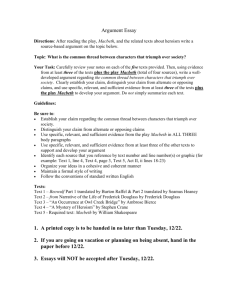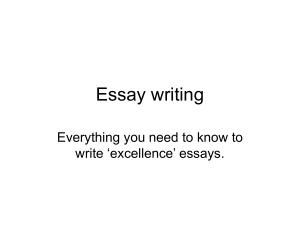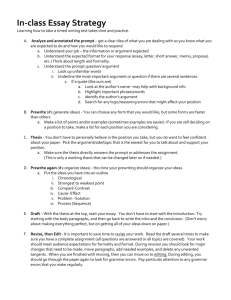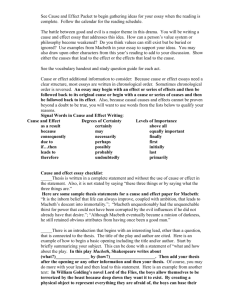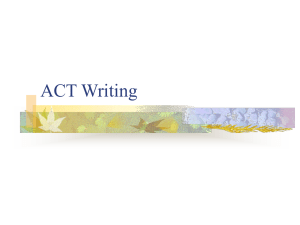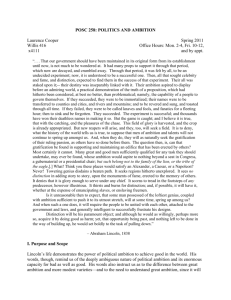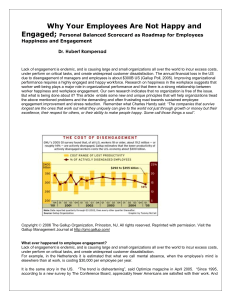Argumentative Essay Directions: After reading the play, Macbeth
advertisement
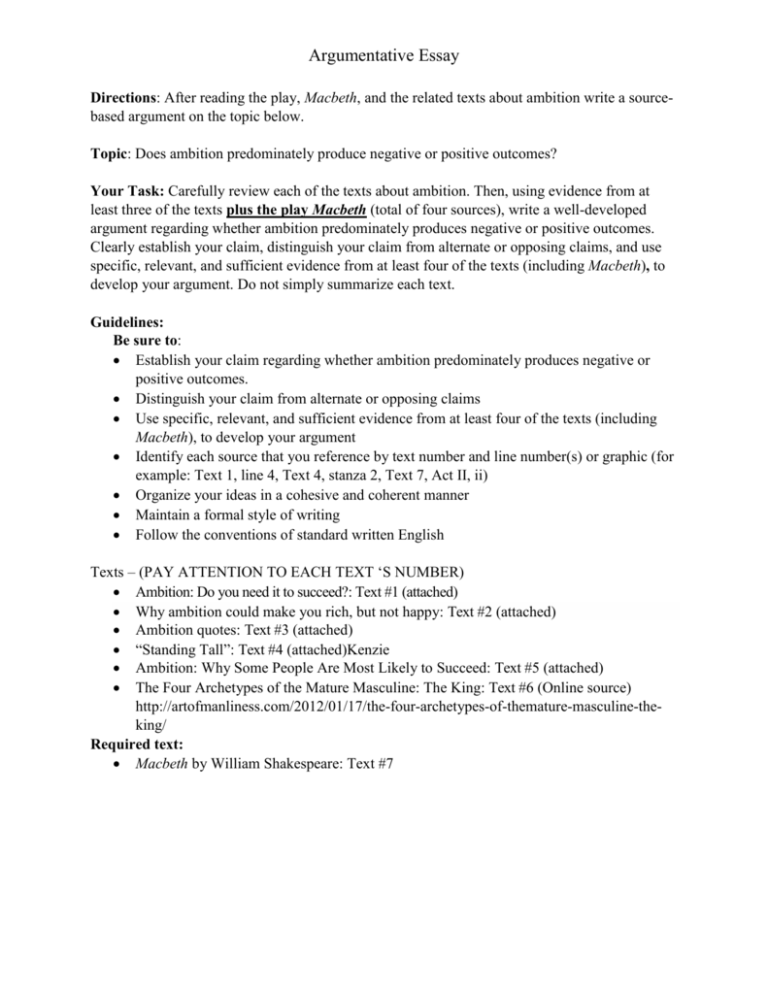
Argumentative Essay Directions: After reading the play, Macbeth, and the related texts about ambition write a sourcebased argument on the topic below. Topic: Does ambition predominately produce negative or positive outcomes? Your Task: Carefully review each of the texts about ambition. Then, using evidence from at least three of the texts plus the play Macbeth (total of four sources), write a well-developed argument regarding whether ambition predominately produces negative or positive outcomes. Clearly establish your claim, distinguish your claim from alternate or opposing claims, and use specific, relevant, and sufficient evidence from at least four of the texts (including Macbeth), to develop your argument. Do not simply summarize each text. Guidelines: Be sure to: Establish your claim regarding whether ambition predominately produces negative or positive outcomes. Distinguish your claim from alternate or opposing claims Use specific, relevant, and sufficient evidence from at least four of the texts (including Macbeth), to develop your argument Identify each source that you reference by text number and line number(s) or graphic (for example: Text 1, line 4, Text 4, stanza 2, Text 7, Act II, ii) Organize your ideas in a cohesive and coherent manner Maintain a formal style of writing Follow the conventions of standard written English Texts – (PAY ATTENTION TO EACH TEXT ‘S NUMBER) Ambition: Do you need it to succeed?: Text #1 (attached) Why ambition could make you rich, but not happy: Text #2 (attached) Ambition quotes: Text #3 (attached) “Standing Tall”: Text #4 (attached)Kenzie Ambition: Why Some People Are Most Likely to Succeed: Text #5 (attached) The Four Archetypes of the Mature Masculine: The King: Text #6 (Online source) http://artofmanliness.com/2012/01/17/the-four-archetypes-of-themature-masculine-theking/ Required text: Macbeth by William Shakespeare: Text #7 Writing Guidelines Essay Requirements 3-5 pages typed, double-spaced, Times New Roman, 12 pt. font Minimum of 4 sources (this includes Macbeth) USE CITATIONS Consider the nature of your appeals (ethos, pathos, logos) Avoid using pronouns – this discredits the essay making it an opinion piece You don’t always have to agree with the position you take in your essay. Sometimes it is easier to argue the other side. Remember that this is an argument essay; you are not simply summarizing the story and offering your opinion about it. Outline Introductory Paragraph 1. Define the issue and your purpose to your readers. Why are you writing about this? Why should your audience be interested? 2. Getting the reader’s attention – anecdote, startling statistic, interesting quote, significance of your concerns 3. The background/history of the issue (if significant) 4. Establish the appropriate tone for your subject and your audience 5. Determine your thesis statement – state your claim. Your thesis statement should answer/address the question - Does ambition predominately produce negative or positive outcomes (provide at least two reasons)? Body Paragraphs (2 minimum) to support your claim 1. Topic Sentence: reiterate what you are specifically arguing in each paragraph with a clear, concise opening statement 2. Proof: incorporate sources/research (news articles provided, Macbeth text, etc.) to defend argument you are making 3. Explanation: justify how your proof supports the stance you have taken in the argument, illuminating why your evidence is valid. 4. Synthesis: create 1-2 sentences at the end of your paragraph that fuse your statement, proof, and explanation together in a creative way. Body Paragraph(s) (1 minimum) Addressing potential opposing arguments You may either: 1. Concede the validity of an opposing argument by qualifying part or accepting all of it while explaining why your position is stronger, or 2. Refute the opposing argument by stating why it is invalid or weak Conclusion 1. Restate your claim/thesis 2. State the significance of your position. 3. Make a final emotional appeal
